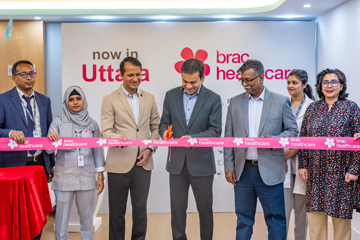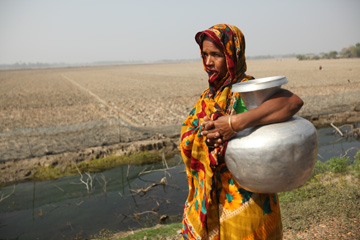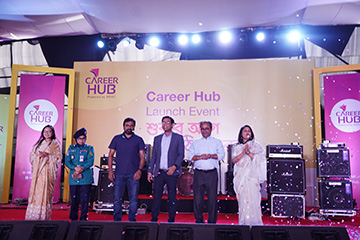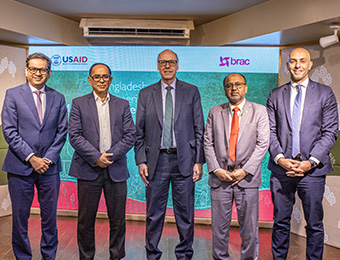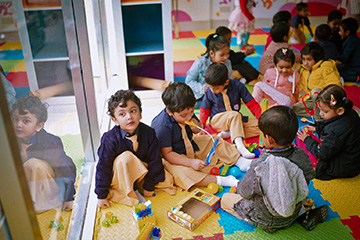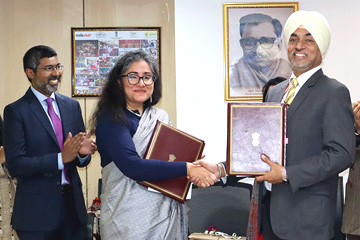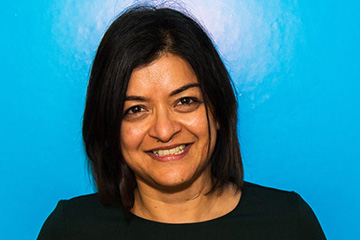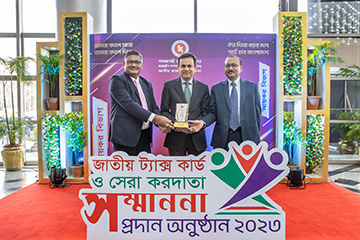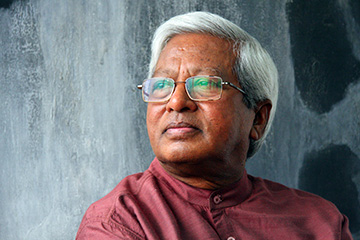
English (959)
Children categories
BRAC Healthcare Centre is now in Uttara
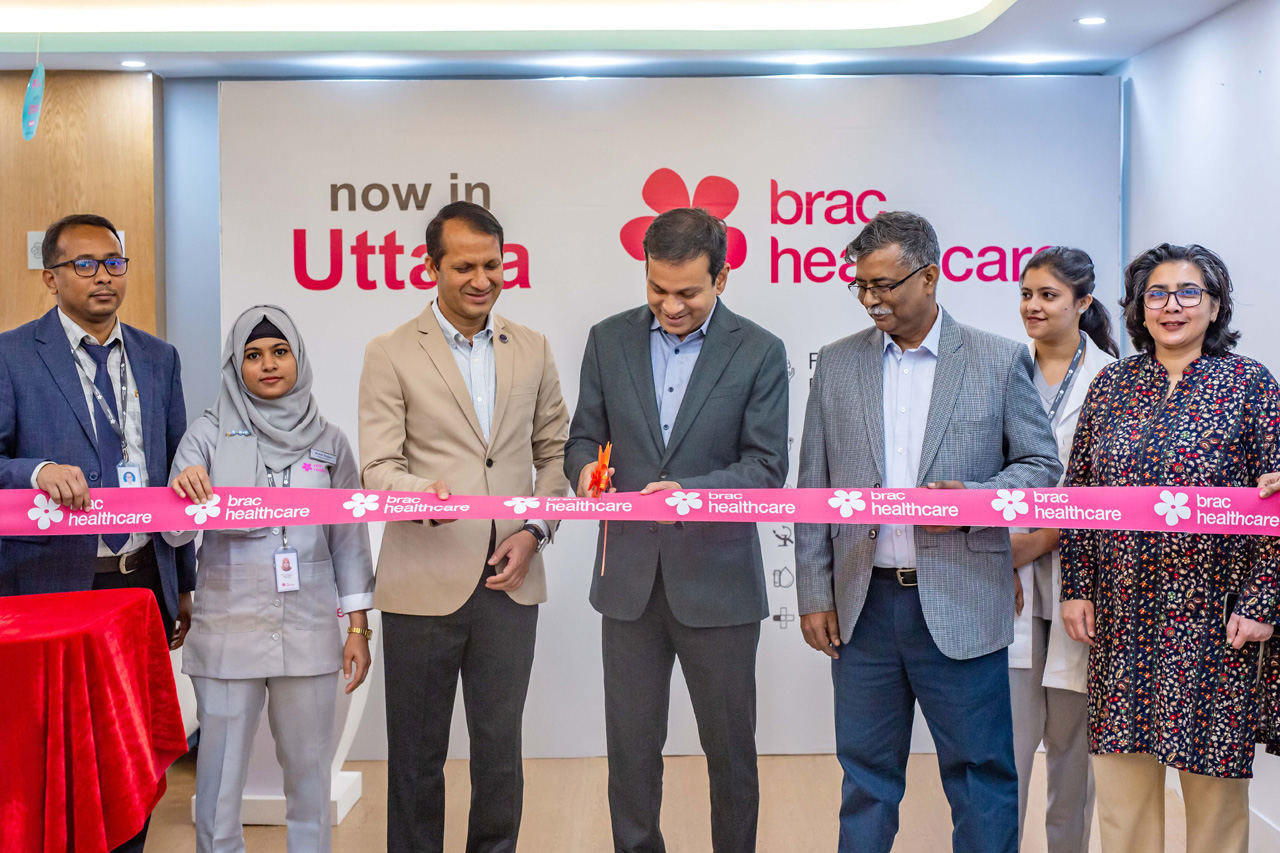
BRAC Healthcare Limited, a concern of BRAC Enterprises, inaugurated its second healthcare centre in Uttara. Asif Saleh, Executive Director of BRAC, officially opened the centre, situated at House 15, Road 12, Sector 6, Uttara, Dhaka, on Wednesday, 6 March, 2024.
Focusing on creating a welcoming atmosphere, BRAC Healthcare centres prioritise a client experience characterised by warmth, empathy, and comfort, aiming to replicate the feeling of being cared for by a close family member.
This expansion marks a significant milestone in the healthcare sector as BRAC Healthcare commits to delivering top-tier, patient-centric medical services adhering to the highest ethical standards. Staffed by a team of highly qualified medical professionals, the centre pledges to meet evolving healthcare needs through six key service pillars: Family Physician and First Aid Care, Doctor Consultations, Health and Wellness (Physiotherapy, Mental Health, and Nutrition), Dental Care, and Diagnostics. The centre also hosts a government-registered model pharmacy, offering access to safe medicines at competitive prices with experienced Pharmacists ready to dispense medication to clients.
In the opening ceremony, Asif Saleh, the Executive Director of BRAC, emphasised, " We acknowledge the prevailing notion that quality healthcare services are often unattainable during emergencies. However, if achieved, it is considered a blessing. We are committed to changing this reality. Patient-centric medical care is our guiding principle at BRAC Healthcare."
Expressing optimism, he remarked, “While it may not be feasible for us to reach the entire population, we aspire to set a standard with the quality of medical services provided by BRAC Healthcare. I hope that witnessing BRAC's exemplary medical care will inspire others to elevate their standards, leading to a positive transformation in the entire healthcare sector.”
Mohammad Anisur Rahman, Senior Director, BRAC Enterprises, stated, "Throughout the one-year journey, our primary objective was to deliver high-quality service to our patients, ensuring a positive experience for them. We believe that we have largely succeeded in this endeavour. Over 90 per cent of individuals who have accessed healthcare from Kazipara centre expressed high satisfaction with our service delivery process.”
Equipped with cutting-edge imaging technology, including X-ray and Ultrasonography (USG), as well as a full-fledged laboratory, the centre promises to deliver timely and accurate test results. BRAC Healthcare's comprehensive dental services encompass regular check-ups, teeth cleanings, cosmetic fillings, tooth extractions and more.
After the successful launch of its first centre at Kazipara in March 2023, BRAC Healthcare served more than 11,000 patients, with 50 per cent of them being women and around 22 per cent below 15 years of age. These patients, and their families, hailed from various socio-economic backgrounds.
This year, BRAC Healthcare plans to extend its services and establishing more centres in various parts of the city and across the nation in the future, aiming to bring positive transformations to the lives of the middle-income population.
The newly inaugurated centre, located at House 15, Road 12, Sector 6, Uttara, Dhaka, is now open for appointments and patient services. For more information about BRAC Healthcare and its services, please visit www.brachealthcare.com, or dial 8809678191911.
Business Unusual – Can we collectively fix financing for locally-led adaptation?
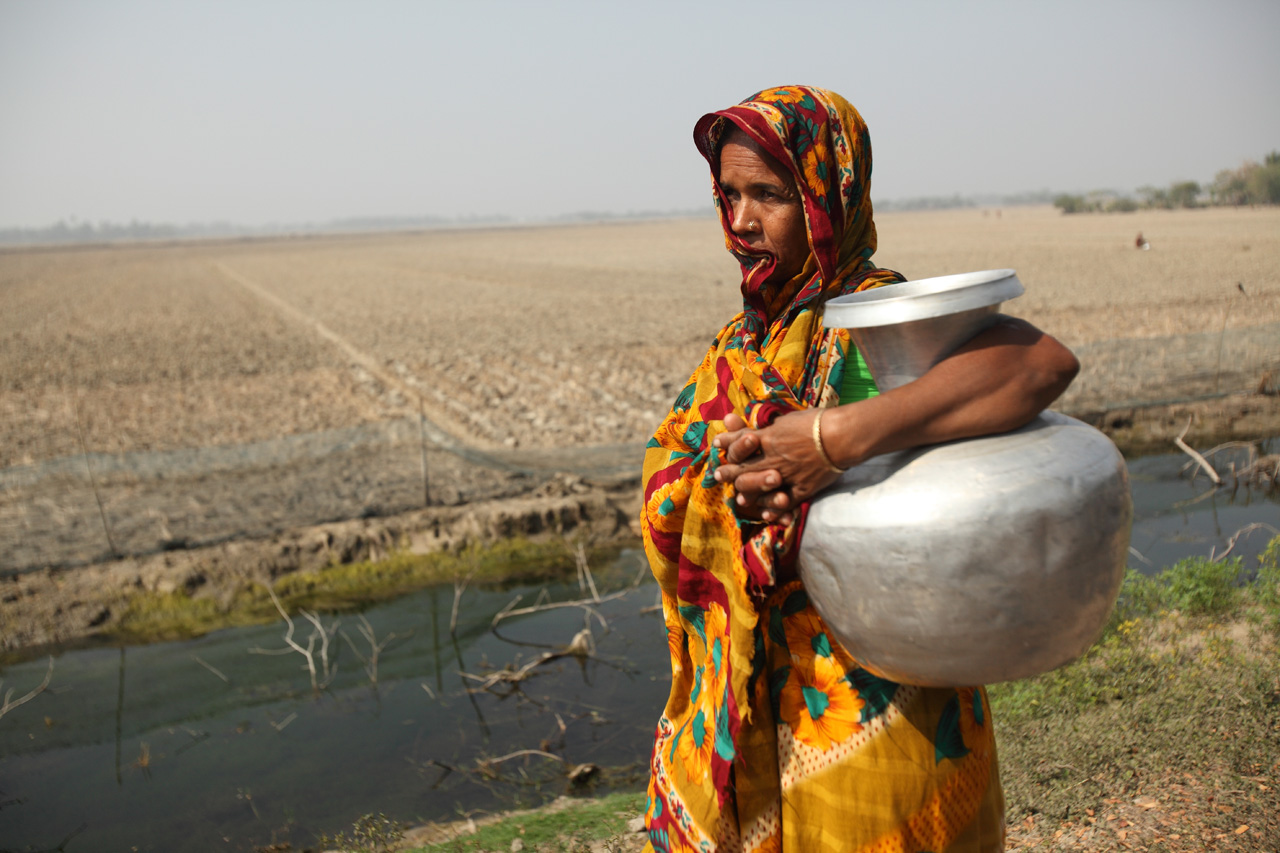
Written by May Thazin Aung, Saqib Huq and Isabel Whisson
Adaptation finance is failing local actors at the frontlines of climate change. A very small proportion of funds disbursed by providers of climate adaptation finance arrives at the local level after being channelled through layers of international intermediaries.
This meagre amount is incredibly hard for local actors to both access and use towards climate action as financing comes with numerous conditionalities encoded into provider’s and intermediaries’ operational rules and policies. For local organisations, these policies translate to confusing eligibility criteria, lengthy applications, rigid due diligence procedures and detailed financial and impact reporting.
It is vital that adaptation finance institutions transform institutional processes within their bureaucracies towards a more business unusual approach. This will require critical introspection around evaluating, absorbing and distributing risk - reputational, financial and political.
Multilateral funds and bilateral donors have stated their commitment to addressing these roadblocks. However, institutionalising change throughout complex bureaucracies in a way that reflects needs on the ground in communities affected by climate change, entails a thoughtful and inclusive process that needs to involve local actors directly tackling the issues being addressed.
BRAC, IIED and ICCCAD have been championing the shift towards an inclusive ‘business unusual’ approach to climate action along with leaders of federated grassroots and regional organisations from the global south. This month at the Fourth Global Gobeshona Conference, BRAC, ICCCAD and IIED are launching a joint initiative to engage stakeholders across the adaptation finance delivery chain, from bilateral donors, to funds, to local civil society actors to understand what the key bottlenecks are and how they may be ameliorated.
Gobeshona’s Keynote Discussion, ‘Business Unusual - How can we make financing for LLA more accessible?’ at 06:00 pm Bangladesh Standard Time (12:00 pm GMT) on Thursday 7 March, will initiate a discussion and share a survey to help us gather insights from both local civil society organisations working on the frontlines of climate change, as well as climate adaptation funders on the key challenges both sets of constituencies face in either accessing or simplifying climate adaptation financing.
We will use the findings to work with all relevant actors to identify a practical set of options that reflect the needs and priorities of local implementers engaged in the adaptation financing chain - among whom we share a common goal: to maximise the ability of climate-vulnerable communities to adapt to the climate crisis.
The survey will remain open until 30 April.
BRAC Career Hub launches in Khulna
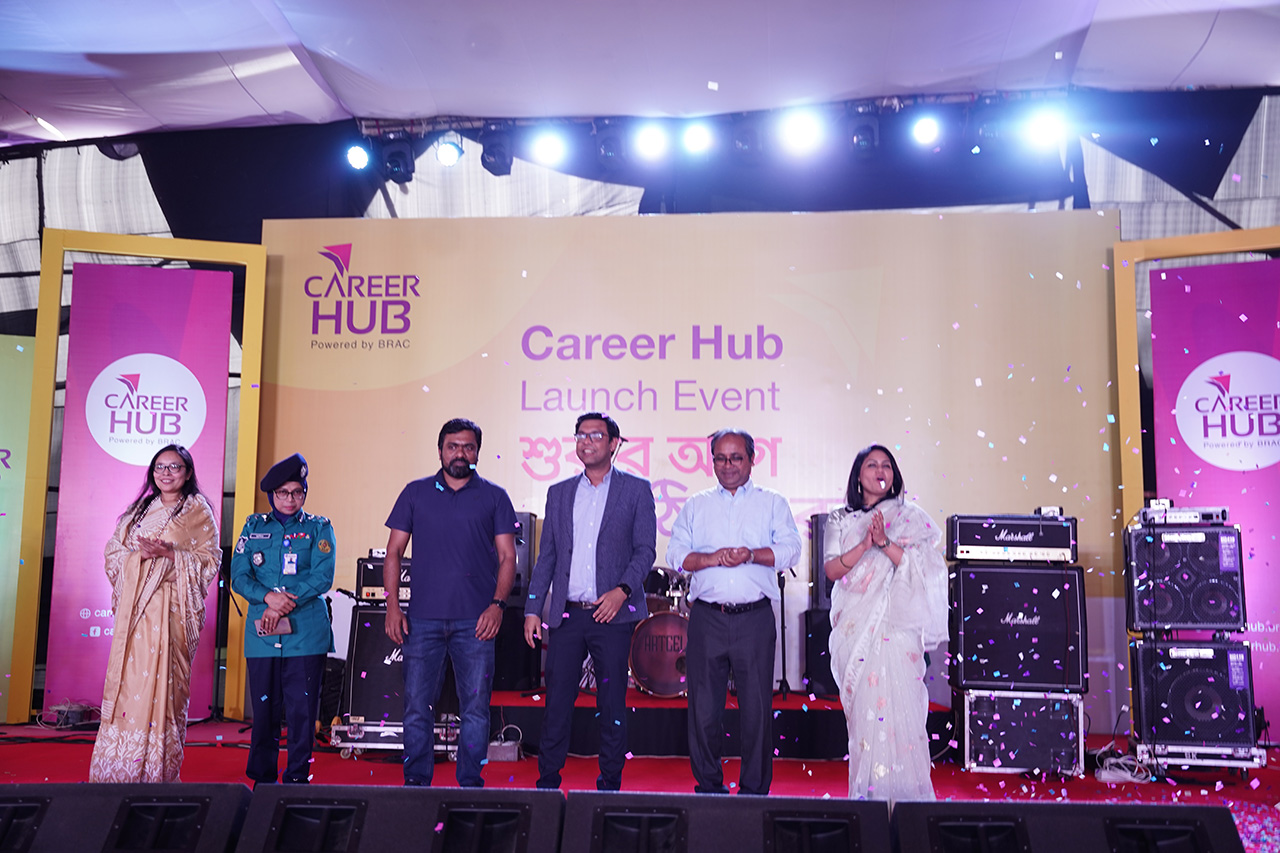
BRAC has inaugurated a Career Hub in Khulna, signifying a significant effort to connect job seekers with employers, thereby fostering an effective relationship between the two.
The launch event for the Career Hub, organised by BRAC's Skills Development Program (SDP) with support from KFW, took place at the Mohila Krira Complex in Khulna on Saturday, 24 February 2024.
Rashida Begum, Additional DIG, Khulna Metropolitan Police was present as Honourable Guest at the event. In addition, BRAC's Senior Director, People, Culture and Communications, Moutusi Kabir; Head of Secretariat, Climate Bridge Fund, Dr. Mohammad Golam Rabbani; Associate Director, BRAC Skills Development Programme, Tasmiah Tabassum Rahman; and Programme Manager Shahriar Islam was also present at the event.
Rashida Begum, Additional DIG, Khulna Metropolitan Police stated, "Job interviews often inquire about prior experience, yet even in the absence of such, opportunities for skills development are available through the career hub. This avenue subsequently aids job seekers in exploring a range of employment possibilities."
In her inaugural speech, Moutushi Kabir, BRAC's Senior Director, People, Culture and Communications, said, “Consider Career Hub as your ally in advancing your career, your reliable resource for addressing all career-related inquiries. Here, you'll find guidance on shaping a prosperous life post-education. BRAC Career Hub endeavours to establish connections with available job opportunities, cultivate essential skills for recruitment assessments, and bolster the confidence of aspiring job seekers.”
Tasmiah Tabassum Rahman, Associate Director, BRAC Skills Development Programme said, “There are three primary reasons why a student may fail to secure employment matching their qualifications upon completing their studies: inadequate job information, insufficient career guidance, and limited job opportunities. Career Hub aims to address these concerns by providing guidance and support to job seekers in navigating these challenges.
The main attraction of the second part of the opening ceremony was the mesmerising performance of Artcell.
According to Bangladesh Bureau of Statistics (BBS) 2022 data, the current unemployment rate in the country stands at 3.53 per cent. The labour force survey-2022 published by the BBS indicates that the rate of Bachelor's degree holders in the country has increased from 11.2 per cent in the fiscal year 2017 to 12 per cent in 2022. The survey also reveals that the number of unemployed graduates has nearly doubled in these five years, reaching around 400,000 in 2017.
An analysis of government data from the last few years shows that more than 2 million youth enter the workforce every year in the country with little or no practical knowledge and skills. A 2021 survey conducted by the Bangladesh Institute of Development Studies (BIDS) states that 66 per cent of National University graduates are unemployed. Many jobseekers have never received career counselling or guidance, hindering their ability to develop skills according to employers' needs.
The situation is particularly challenging for women and persons with disabilities due to fewer opportunities to acquire expected skills, negative social attitudes, limited movement opportunities, and societal pressure.
In response to this scenario, employers are also seeking skilled manpower. Taking this into consideration, BRAC initiated this endeavour by establishing career hub centres in Rangpur and Sylhet in 2020. Subsequently, the fourth career hub was opened in Chattogram in 2023, and now in Khulna.
An online platform has also been launched to reach the youth more intensively. Plans are underway to open Career Hub centres in Cox's Bazar and Dhaka this year. This event in Khulna marks the launch of Career Hub services and related facilities for youth, employers, government partner institutions, and other relevant authorities.
BRAC and USAID launch the Bangladesh America Maitree Project to enhance the capacity of local NGOs

Today (15 February 2024), the United States Agency for International Development (USAID) and BRAC launched the new Bangladesh America Maitree Project that will expand new funding and training opportunities directly to grassroots-level nongovernmental organizations (NGOs) to implement development programs in the communities they serve.
USAID Mission Director Reed Aeschliman and BRAC Executive Director Asif Saleh jointly announced the Maitree Project alongside representatives from local NGOs around the country. The project will establish a competitive grant-making facility in which local NGOs can apply for grants to conduct projects in health, education, agriculture, climate resilience, or address other development needs in their communities.
Local organizations will also receive training to improve proposal writing, project design and operational capacity – while strengthening their ability to collaborate, build networks, and develop local solutions to tackle development challenges.
“Locally-led development is the cornerstone of USAID’s philosophy and we are excited to partner with BRAC to help smaller NGOs improve their development programs and foster a more vibrant civil society,” said USAID Mission Director Reed Aeschliman.
Md. Saidur Rahman, Director General (DG) of the NGO Affairs Bureau at the Prime Minister’s Office, welcomed the Bangladesh America Maitree Project and emphasized the importance of collaboration between the public and private sectors for the advancement of the country.
In his remark, BRAC Executive Director Asif Saleh said, “Localization is not an end in itself, but rather a means to an end. BRAC started as a relief organization but it grew bigger by continuously listening to the community. All its activities including microfinance, education, and health started as a response to community needs. Local level NGOs must devise their own solutions to address specific challenges instead of relying on donor-driven approaches. And that is why I am so excited about this Maitree Project, which aims to advance locally-led development.”
Local NGOs operating at the grassroots level have played a vital role in boosting Bangladesh's socio-economic development. As the country is eyeing graduation, local NGOs and civil society organizations can more easily adopt innovative program design methods, form partnerships with the private sector, and enhance their organizational strengths – enabling Bangladesh to witness a stronger civil society, significantly contributing to its path to becoming a middle-income country.
The Maitree Project will provide local NGOs with more resources for innovation and growth, and will actively transform the local partner ecosystem by promoting collaboration, coalition-building, and advocacy at various levels. The ultimate goal is to create a more resilient and dynamic civil society, benefiting Bangladesh's overall economic progress.
With support from USAID, the Bangladesh America Maitree Project is implemented by BRAC and aims to strengthen civil society in Bangladesh.
নবম ‘ব্র্যাক মাইগ্রেশন মিডিয়া অ্যাওয়ার্ড’

বাংলাদেশের অর্থনৈতিক উন্নয়নে প্রবাসী আয় বা রেমিট্যান্সের ভূমিকা খুবই গুরুত্বপূর্ণ। এক কোটিরও বেশি বাংলাদেশি বৈদেশিক কর্মসংস্থান ও উন্নত জীবনের জন্য বিদেশে অবস্থান করছেন। বছরে তারা ২২ থেকে ২৪ বিলিয়ন ডলারের প্রবাসী আয় পাঠাচ্ছেন। জাতিসংঘের সর্বশেষ পরিসংখ্যান অনুযায়ী ২৮১ মিলিয়ন মানুষ কাজের জন্য বা নানা প্রয়োজনে অন্য দেশে বাস করছেন এবং উভয় দেশেরই আর্থ-সামাজিক উন্নয়নে গুরুত্বপূর্ণ অবদান রেখে চলেছেন। বাংলাদেশকে আর্থিকভাবে সমৃদ্ধ করতে বৈদেশিক কর্মসংস্থান ও প্রবাসী আয় গুরুত্বপূর্ণ ভূমিকা পালন করলেও প্রয়োজনীয় তথ্যের অভাবে অভিবাসন প্রত্যাশিরা প্রায়শই প্রতারণার সম্মুখীন হচ্ছেন। অনেকে অনিয়মিত পন্থায় বিদেশে গিয়ে ব্যর্থ হয়ে দেশে ফিরছেন।
বিশ্বের সর্ববৃহৎ বেসরকারি উন্নয়ন সংস্থা হিসেবে ব্র্যাক বাংলাদেশের অভিবাসনপ্রবণ জেলাগুলোতে নিরাপদ অভিবাসন নিশ্চিত, মানবপাচার প্রতিরোধ ও সচেতনতা সৃষ্টি এবং বিদেশফেরত অভিবাসীদের পুনরেকত্রীকরণের লক্ষ্যে কাজ করে যাচ্ছে। নিরাপদ অভিবাসনের বিষয়ে সাধারণ মানুষকে সচেতন করতে এবং বিদেশফেরতদের পুনরেকত্রীকরণে ইউরোপীয় ইউনিয়ন ও ব্র্যাকের যৌথ অর্থায়নে ‘ইমপ্রুভড সাসটেনেবল রিইনটিগ্রেশন অব বাংলাদেশি রিটার্নি মাইগ্রেন্টস (প্রত্যাশা-২)’ নামে ব্র্যাক একটি প্রকল্প বাস্তবায়ন করছে।
অভিবাসী কর্মী ও তাদের পরিবারের অধিকার রক্ষায় গণমাধ্যমের ভূমিকা অনস্বীকার্য এবং প্রশংসনীয়। অভিবাসনবিষয়ক সাংবাদিকতাকে আনুষ্ঠানিকভাবে স্বীকৃতি দিতে ব্র্যাক ২০১৫ সালে প্রথমবারের মতো ‘মাইগ্রেশন মিডিয়া অ্যাওয়ার্ড’ প্রবর্তন করে। এরই ধারাবাহিকতায় এবার নবম ‘ব্র্যাক মাইগ্রেশন মিডিয়া অ্যাওয়ার্ড’ প্রদান করা হবে।
যেসব বিভাগে/ক্যাটাগরিতে নবম ‘ব্র্যাক মাইগ্রেশন মিডিয়া অ্যাওয়ার্ড’ প্রদান করা হবে
(ক) সংবাদপত্র (জাতীয়) : অভিবাসনবিষয়ে দেশে-বিদেশে যে কোনো জাতীয় সংবাদপত্রে প্রকাশিত প্রতিবেদন।
(খ) সংবাদপত্র (আঞ্চলিক) : অভিবাসনবিষয়ে বাংলাদেশের যে কোনো আঞ্চলিক সংবাদপত্রে প্রকাশিত প্রতিবেদন।
(গ) অনলাইন : অভিবাসনবিষয়ে দেশে-বিদেশে যে কোনো অনলাইন পত্রিকায় প্রকাশিত প্রতিবেদন।
(ঘ) টেলিভিশন সংবাদ : অভিবাসনবিষয়ে দেশে-বিদেশে যে কোনো টেলিভিশনে সম্প্রচারিত অনুসন্ধানী প্রতিবেদন।
(ঙ) টেলিভিশন অনুষ্ঠান : অভিবাসনবিষয়ে দেশে-বিদেশে যে কোনো টেলিভিশনে সম্প্রচারিত অনুসন্ধানমূলক অনুষ্ঠান।
(চ) রেডিও : অভিবাসনবিষয়ে দেশে-বিদেশে যে কোনো রেডিওতে সম্প্রচারিত অনুষ্ঠান/প্রতিবেদন।
(ছ) সোশ্যাল মিডিয়া : নিরাপদ অভিবাসন প্রতিষ্ঠায় ভূমিকা রাখা মানসম্মত ফেসবুক পেজ/ব্যক্তিগত আইডি/ব্লগ/ইউটিউব
(জ) সংবাদমাধ্যম প্রতিষ্ঠান : অভিবাসনবিষয়ে ভূমিকা রাখা প্রিন্ট/অনলাইন/টেলিভিশন।
প্রতিবেদন/অনুষ্ঠান/সোশ্যাল মিডিয়া কনটেন্টসমূহ প্রকাশ বা প্রচারের সময়সীমা
দেশে অথবা প্রবাসে অবস্থানরত যে কোনো বাংলাদেশি সাংবাদিক ও গণমাধ্যমকর্মী আবেদন করতে পারবেন। এ ছাড়া সোশ্যাল মিডিয়া ক্যাটাগরিতে যে কোনো বাংলাদেশি আবেদন করতে পারবেন। অভিবাসনবিষয়ক প্রতিবেদন/অনুষ্ঠান/ব্লগ/সোশ্যাল মিডিয়া কন্টেন্টসমূহ অবশ্যই ১ জানুয়ারি ২০২৩ থেকে ৩১ ডিসেম্বর ২০২৩ তারিখের মধ্যে প্রকাশিত/প্রচারিত হতে হবে।
যোগ্যতা ও সতর্কতা
মাইগ্রেশন মিডিয়া অ্যাওয়ার্ড-এর জন্য জমা দেওয়া প্রতিবেদন/অনুষ্ঠান স্বত্বাধিকার নিশ্চিত করতে হবে। সংবাদপত্রে প্রকাশিত প্রতিবেদনসমূহের অনলাইন লিংক এবং টেলিভিশনে প্রচারিত প্রতিবেদন/অনুষ্ঠানের ইউটিউব লিংক প্রতিবেদনের সঙ্গে জমা দিতে হবে।
যদি অনলাইন লিংক বা ইউটিউব লিংক না থাকে, সেক্ষেত্রে সংশ্লিষ্ট গণমাধ্যমের সম্পাদক/বার্তা সম্পাদক কর্তৃক নির্ধারিত সময়ের মধ্যে (১ জানুয়ারি ২০২৩ থেকে ৩১ ডিসেম্বর ২০২৩) সংবাদ/অনুষ্ঠানটি প্রচারিত হয়েছে মর্মে (প্রকাশ/প্রচারের তারিখ উল্লেখসহ) সত্যয়নপত্র যুক্ত করতে হবে। সোশ্যাল মিডিয়ার ক্ষেত্রে কন্টেন্টগুলো একই সময়ের মধ্যে প্রকাশিত/প্রচারিত হতে হবে। অসম্পূর্ণ/ভুল তথ্যসংবলিত আবেদন বাতিল বলে গণ্য হবে।
আবেদন করার নিয়ম/শর্ত
১. অভিবাসন খাত, অভিবাসী ও শরণার্থী কিংবা তাদের পরিবারের অধিকাররক্ষায় গুরুত্বপূর্ণ ভূমিকা রেখেছে, এরকম প্রতিবেদন/অনুষ্ঠান/সোশ্যাল মিডিয়া কনটেন্ট (প্রকাশিত বা সম্প্রচারিত) হতে হবে।
২. সংবাদ প্রতিবেদন বা অনুষ্ঠানের ক্ষেত্রে দেশে বা প্রবাসে অবস্থানরত শুধু বাংলাদেশি সাংবাদিকরাই এই অ্যাওয়ার্ডের জন্য আবেদন করতে পারবেন।
৩. সোশ্যাল মিডিয়া কন্টেন্টের ক্ষেত্রে যে কোনো বাংলাদেশী আবেদন করতে পারবেন।
৪. আবেদনকারীকে অবশ্যই তার জীবনবৃত্তান্ত যথাযথ ফরম্যাটের মাধ্যমে (ফরম্যাট শেষ পাতায় যুক্ত) পাঠাতে হবে। প্রয়োজনীয় নথি হিসেবে প্রতিবেদন যে মাধ্যমে প্রকাশিত হয়েছে, তার বিবরণ জমা দিতে হবে।
৫. আবেদনকারী তার কর্মজীবন সম্পর্কে অর্ধেক পাতার মধ্যে সংক্ষিপ্ত বিবরণ (বাংলা ও ইংরেজি ভাষায়) যুক্ত করে পাঠাবেন। যুক্ত ফরম্যাট পূরণ করে আবেদনপত্রের সঙ্গে পাঠাতে হবে।
৬. প্রিন্ট মিডিয়ার প্রতিবেদনের ক্ষেত্রে (জাতীয় ও স্থানীয় উভয় ক্ষেত্রে) সংবাদপত্রে প্রকাশিত মূল কপিটি প্রেরণ করতে হবে। সংবাদপত্র ও প্রতিবেদকের নাম ও প্রকাশের তারিখ অবশ্যই দৃশ্যমান হতে হবে। সংযুক্তি হিসেবে প্রকাশিত কপি ছাড়াও সিডি/ডিভিডি/পেন-ড্রাইভের মাধ্যমে সংবাদটির ওয়েব লিংক এবং সফট কপি জমা দিতে হবে।
৭. বেতারের ক্ষেত্রে এএম এবং এফএম বেতারতরঙ্গে সম্প্রচারিত অনুষ্ঠান অথবা প্রতিবেদন হতে হবে। এর সঙ্গে সংক্ষিপ্ত/সম্পূর্ণ স্ক্রিপ্ট যদি বর্তমান থাকে, তবে তা জমা দিতে হবে। নিয়মিত বেতারে সম্প্রচারিত অনুষ্ঠানের ক্ষেত্রে অন্ততঃ অনুষ্ঠানের পরপর তিনটি পর্বের কপি জমা দিতে হবে।
৮. টেলিভিশনের ক্ষেত্রে অবশ্যই সম্পূর্ণ স্ক্রিপ্ট সহকারে প্রতিবেদনটি ডিভিডি-র মাধ্যমে জমা দিতে হবে।
৯. অনলাইন মিডিয়ার ক্ষেত্রে শুধুমাত্র প্রতিবেদনটি ওয়েবসাইটে প্রকাশিত হতে হবে এবং অনলাইনে যেভাবে প্রচারিত হয়েছে সেভাবে সংশ্লিষ্ট প্রতিবেদনটি স্ক্রিনশটসহ জমা দিতে হবে। এ ছাড়াও ইউআরএলসহ সফট কপি সিডি-তে জমা দিতে হবে।
১০. সোশ্যাল মিডিয়ার ক্ষেত্রে ফেসবুক পেজ/ব্যক্তিগত আইডি অথবা ইউটিউব চ্যানেলে প্রকাশিত অন্তত দশটি কন্টেন্টের লিংক এবং সোশ্যাল মিডিয়ায় যেভাবে প্রকাশিত হয়েছে, সেভাবে স্ক্রিনশট দিয়ে পাঠাতে হবে। (২০২৩ সালের ৩১ ডিসেম্বরের পর কন্টেন্টের কোনো ধরনের সম্পাদনা গ্রহণযোগ্য হবে না)।
১১. সংবাদমাধ্যম প্রতিষ্ঠানের ক্ষেত্রে ২০২৩ সালে অভিবাসন বিষয়ে তাদের যতগুলো গুরুত্বপূর্ণ সংবাদ/মতামত/অনুষ্ঠান/টকশো প্রচারিত ও প্রকাশিত হয়েছে, প্রতিটি অনুষ্ঠানের ওয়েব লিংক যুক্ত করে পাঠাতে হবে। ওয়েব লিংক না থাকলে সিডি আকারেও পাঠানো যাবে।
১২. একজন আবেদনকারী একাধিক বিভাগে আবেদন করতে পারবেন। তবে একটি বিভাগের জন্য একটি প্রতিবেদনের বেশি জমা দেওয়া যাবে না।
১৩. কোনো ব্যক্তি/প্রতিষ্ঠান পরপর তিনবার ব্র্যাক মাইগ্রেশন মিডিয়া অ্যাওয়ার্ড-এ ভূষিত হলে, তাদেরকে আবেদন না করতে বিনীতভাবে অনুরোধ করা হচ্ছে।
বিচারকমণ্ডলী
যেসব প্রতিষ্ঠান বা সংস্থার সম্মানিত বিচারকমণ্ডলী দ্বারা আবেদনকৃত প্রবন্ধ/অনুসন্ধানী প্রতিবেদন মূল্যায়ন করা হবে-
১. প্রবাসী কল্যাণ ও বৈদেশিক কর্মসংস্থান মন্ত্রণালয়ের একজন প্রতিনিধি।
২. গণযোগাযোগ ও সাংবাদিকতা বিভাগের একজন শিক্ষক।
৩. আন্তর্জাতিক সংস্থার একজন প্রতিনিধি।
৪. একজন গণমাধ্যম ব্যক্তিত্ব।
আবেদনের শেষ তারিখ
নবম ‘ব্র্যাক মাইগ্রেশন মিডিয়া অ্যাওয়ার্ড’ কমিটির কাছে ১৬ মার্চ ২০২৪ তারিখ বিকেল ৫টার মধ্যে আবেদনটি পৌঁছাতে হবে। নির্ধারিত সময়সীমার পরে কোনো আবেদন গ্রহণযোগ্য হবে না। আবেদন সরাসরি বা ডাকযোগে জমা দিতে হবে।
আবেদন জমাদানের ঠিকানা
নবম ‘ব্র্যাক মাইগ্রেশন মিডিয়া অ্যাওয়ার্ড’
মাইগ্রেশন প্রোগ্রাম-ব্র্যাক
ব্র্যাক সেন্টার, ৭৫ মহাখালী (১২ তলা)
ঢাকা-১২১২, বাংলাদেশ
ইমেল : This email address is being protected from spambots. You need JavaScript enabled to view it.
প্রয়োজনে যোগাযোগ : ফোন: ৮৮ ০২ ২২২২ ৮১২৬৫ এক্সটেনশন : ৩৯১৩
পুরস্কার বিতরণী অনুষ্ঠান
নবম ‘ব্র্যাক মাইগ্রেশন মিডিয়া অ্যাওয়ার্ড’-এর অ্যাওয়ার্ড প্রদান অনুষ্ঠানের তারিখ সংশ্লিষ্টদের যথাসময়ে জানানো হবে।

BRAC Academy launches in Bogura
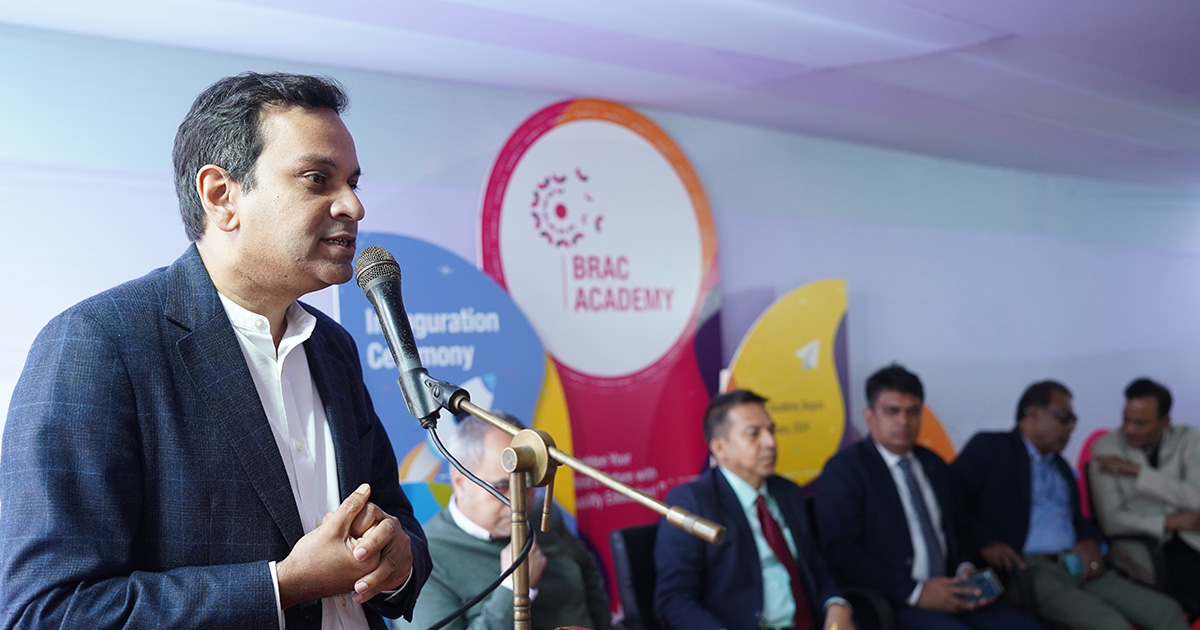
BRAC Academy, one of BRAC Education Programme’s flagship models, proudly announces the establishment of its second branch in Bogura (the first branch was launched in Cumilla in 2019), marking a significant milestone in its journey towards providing quality education to children across the nation.
The Academy, is a child-centred affordable school chain offering primary education in district towns. It offers modern teaching-learning methods, enriched content, and skills to ensure students are nurtured towards successful adulthood by sparking their learning curiosity and instilling in them excellent values, behaviours, respect and responsibility.
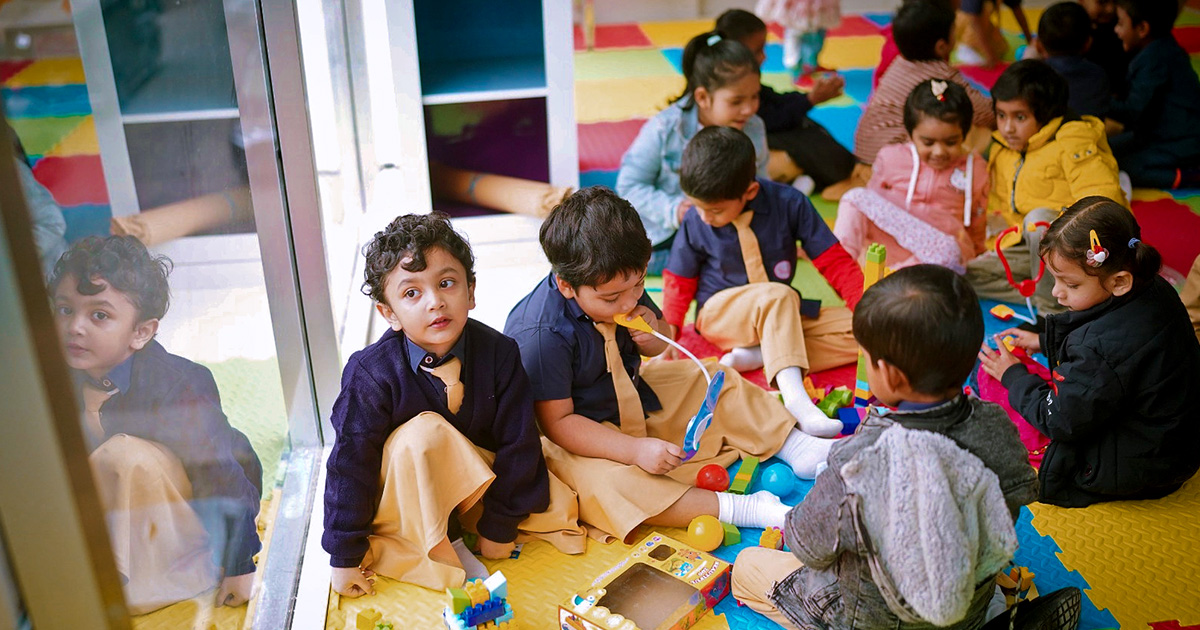
The Academy opened its door on 10 January 2024 and was officially launched by the Executive Director of BRAC, Asif Saleh, today, 7 February, in Bogura.
The launching took place amidst great enthusiasm and anticipation from the local community. 102 students, ranging from Play Group to Grade 3, were warmly welcomed into the school, symbolising the beginning of a promising academic year filled with opportunities for growth and success.
Safi Rahman Khan, Director of Education, Skills Development, and Migration at BRAC, opened the event with a welcoming message for all the parents and students.
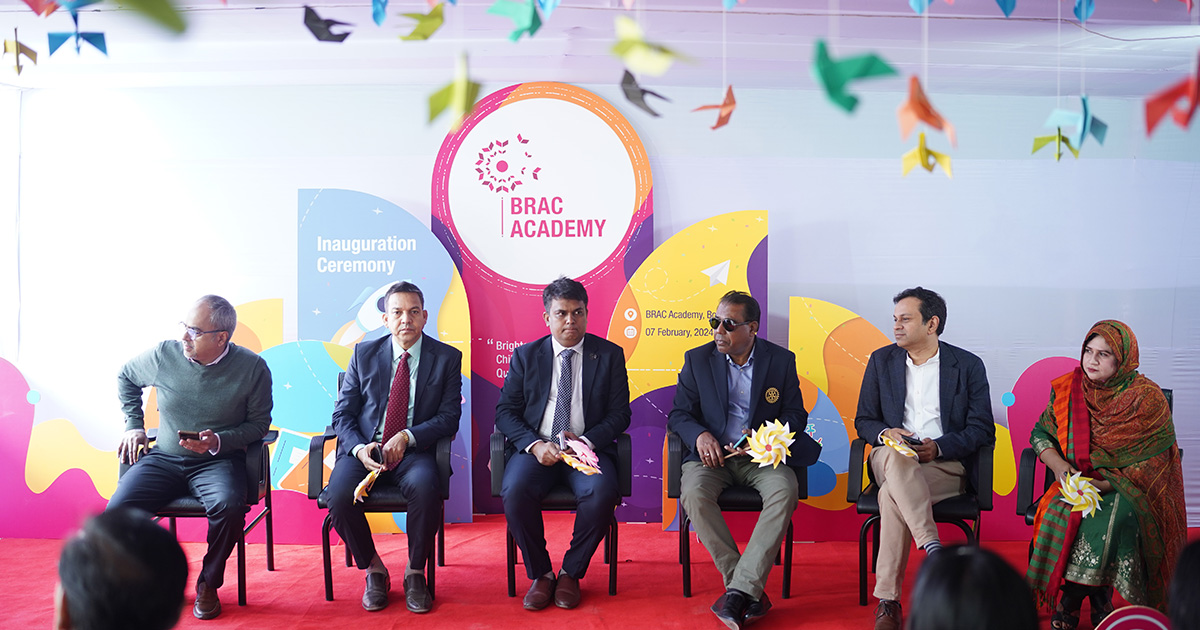
The event was graced by the presence of esteemed guests, including Chief Guest, Additional District Commissioner (General), Mohammad-Al-Maruf; Special Guest Mayor, Md Rezaul Karim Badsha, and Special Guest Assistant District Primary Education Officer, Md Zaved Akhter.
Mohammad Al-Maruf expressed amazement at the innovative approach of the model school, highlighting its focus on playful learning and modern pedagogical methods, something he never experienced during his childhood. He further emphasised the strong awareness among parents in Bogura for quality education, evident from the academy's demand. Based on this, he urged BRAC to consider establishing a dedicated campus and expanding the school to cater to the growing needs.
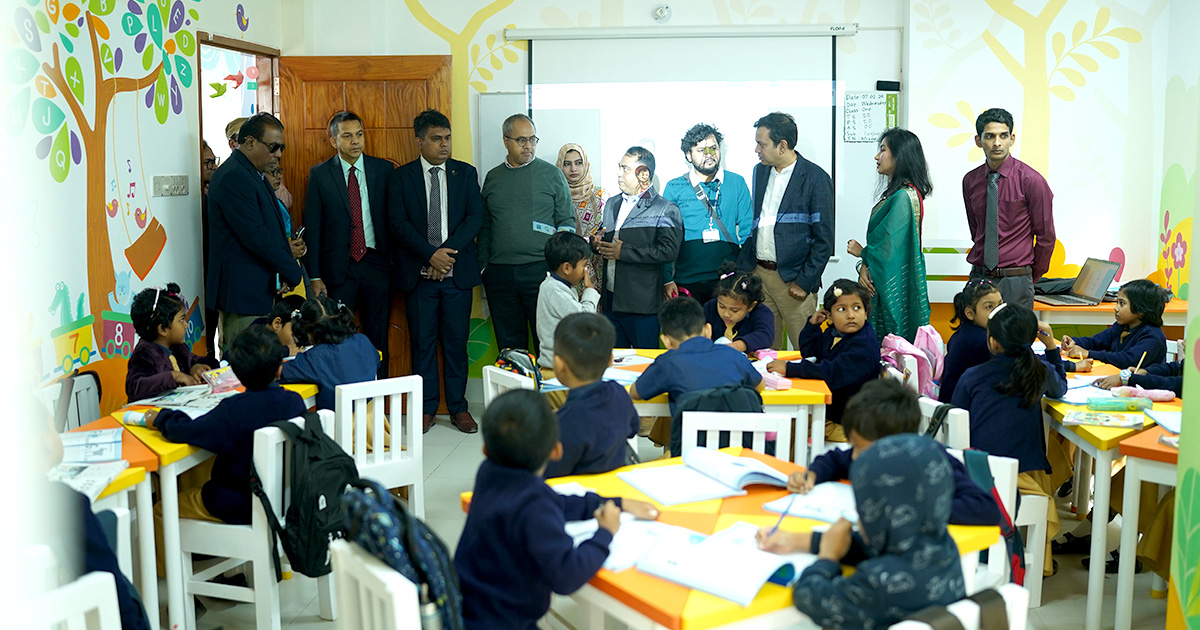
Asif Saleh presided over the event, lauding the team's relentless efforts in making the academy a reality. He expressed his deep appreciation for their work, encompassing not just the meticulous design of the school premise but also the crucial groundwork in the curriculum. This involved extensive research, collaboration with international consultants, and thoughtful adaptation of global trends to create a cutting-edge educational programme.
BRAC Academy aims to empower young minds with the tools they need to become future leaders and changemakers. With its expansion to Bogura, BRAC is poised to make a lasting impact on the local community by providing quality education accessible to all.
For admissions and inquiries, interested individuals are encouraged to contact BRAC Academy at 8801332743374 or 8801716386286.
MoU signed for economic inclusion and social protection for the marginalised communities
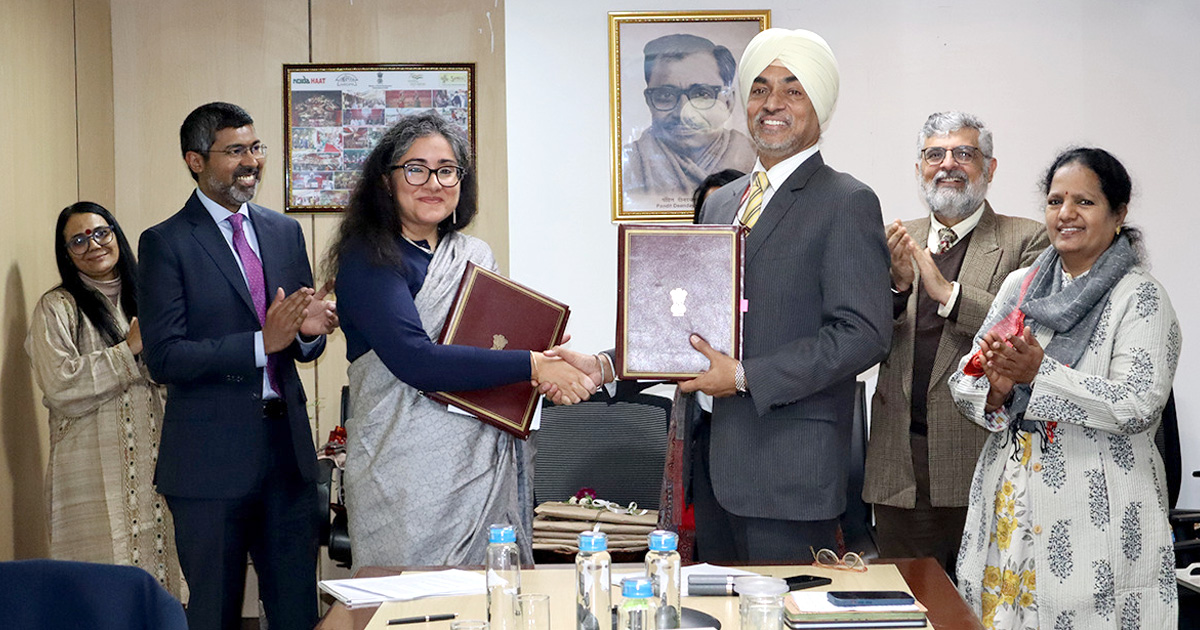
National Rural Livelihood Promotion Society (NRLPS), MoRD signed MoU with BRAC International for economic inclusion and social protection for the poorest of the poor women
Caption for image above (left to right: Mona Dave, Consultant for BRAC International, Shameran Abed, Executive Director of BRAC International, Shweta Banerjee, Country Lead for India, BRAC International, Shri Charanjit Singh, Additional Secretary and CEO of NRLPS, Smt Smriti Sharan, Joint Secretary (RL-1) of DAY-NRLM, Raman Wadha, Director of DAY-NRLM, P. Usha Rani, IBCB SISD and HR, NRLM)
National Rural Livelihood Promotion Society (NRLPS), an autonomous body under the Ministry of Rural Development (MoRD) signed an MOU with BRAC International, a Global South-led organisation with a mission to empower people and communities. The MoU has been signed for inclusion of the poorest of the poor under Deendayal Antyodaya Yojana National Rural Livelihoods Mission (DAY-NRLM), a flagship programme under MoRD. The MoU was formalised by Additional Secretary and CEO of NRLPS, Shri Charanjit Singh and Country lead for India, BRAC International, Ms. Shweta S Banerjee in the presence of Joint Secretary (RL-1), DAY-NRLM, Smt Smriti Sharan, Director, DAY-NRLM, Mr. Raman Wadhwa and Executive Director, BRAC International Mr. Shameran Abed.
In his address, Shri Charanjit Singh remarked, “The DAY-NRLM mission has reached a stage where more than 100 million women members have been mobilised into community institutions.” He emphasised on the role of partnerships and leveraging BRAC’s global experience in reaching those furthest behind.
Smt Smriti Sharan conveyed, “this partnership is taking shape at a crucial juncture for DAY-NRLM, which has been steadfastly dedicated to universal and inclusive mobilisation. With 100 million rural poor households mobilised already, our focus now shifts to uplifting ‘lakhpati didis’ through Samaveshi Aajeevika, an inclusive livelihood programme, while also ensuring the inclusion of the most marginalised in the SHG movement.”
Mr. Shameran Abed extended his gratitude to both DAY-NRLM and BRAC India team for their dedication in recognising their respective strengths and coming to an agreement to sign the Memorandum of Understanding (MoU). He expressed BRAC’s readiness to collaborate with the Ministry in facilitating Samaveshi Aajeevika with the government taking the lead.
Samaveshi Aajeevika aims to build self-confidence, social inclusion, and prosperity via inclusive livelihoods at the last mile. The programme will introduce holistic productive inclusion strategies to improve the lives of excluded populations. It will adapt a globally tested and proven “Graduation approach” to the DAY-NRLM programme to reach those households that are presently having difficulty benefiting from the SHG net.
Founded in Bangladesh in 1972, BRAC now works in 17 countries and has partnered with over 100 million people, delivering cost-effective, evidence-backed interventions. One such intervention is the globally recognised “Graduation approach” that has been taken up by private organisations and governments and evaluated extensively with positive results.
BRAC welcomes Divya Bajpai as Executive Director of BRAC in Europe
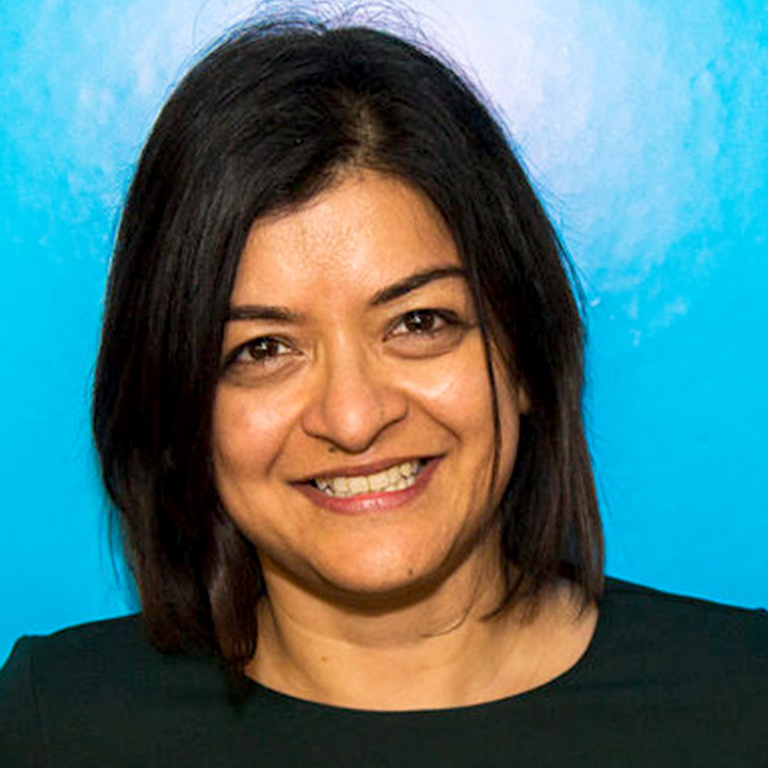 BRAC is pleased to announce that Divya Bajpai will be joining the organisation on March 2, 2024 as Executive Director for BRAC in Europe, responsible for the development of our partnerships with European-based partners.
BRAC is pleased to announce that Divya Bajpai will be joining the organisation on March 2, 2024 as Executive Director for BRAC in Europe, responsible for the development of our partnerships with European-based partners.
This is a new role designed to lead BRAC’s ambitious plans to forge strategic partnerships in Europe to scale up innovative programming approaches in Africa and Asia, and to influence development and humanitarian policies in Europe, towards a shared goal of ending extreme poverty in the world.
Divya, who is currently Interim Executive Director at Frontline AIDS, said: “I am delighted to be joining BRAC at this exciting time as we embark on ambitious plans to broaden and scale up our partnerships across Europe. As the sector works out how best to realise our ambition of empowering our southern partners, I believe BRAC has a unique role and responsibility to help shape this transition.”
Ken Caldwell, Chair of Trustees at BRAC in UK, said: “I am delighted that we have been able to appoint Divya to this new role. She brings considerable experience of developing funding and advocacy partnerships across Europe and a real passion for bringing stronger southern voices to shaping international development policies and priorities.”
Executive Director of BRAC, Asif Saleh, also commented on the appointment. “We are aiming to strengthen and broaden our partnerships across Europe, in order to scale up innovative programmes in Asia and Africa focused on supporting families to escape from extreme poverty and to combat the consequences of climate change. We hope to bring the insights from this work to help key decision-makers in Europe to contribute to solving these key global challenges. I am looking forward to working closely with Divya as she leads our efforts to deliver this ambitious plan.”
BRAC achieved recognition as the leading contributor to tax revenue
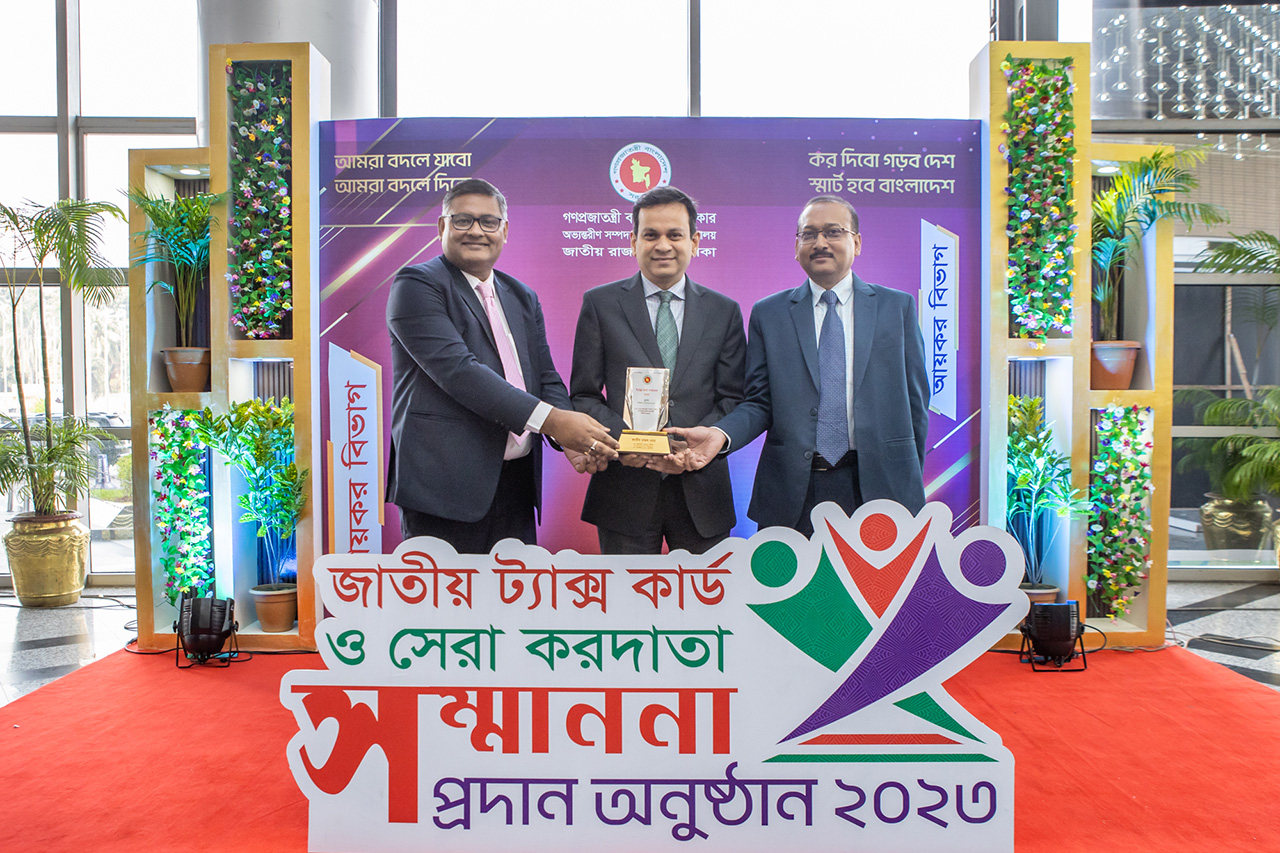
In the fiscal year 2022-23, BRAC achieved recognition as the leading contributor to tax revenue. The National Board of Revenue (NBR) bestowed this honour on Wednesday, 20 December 2023. NBR Chairman, Abu Hena Md. Rahmatul Muneem presented the accolade to BRAC's Executive Director, Asif Saleh, during the National Tax Card and Best Taxpayer Awards ceremony held at the Bangabandhu International Conference Center. Tushar Bhowmik, Chief Financial Officer (CFO) and Ashit Baran Das, Associate Director, BRAC, were present.
A total of 141 individuals and organisations received tax cards from the NBR as a tribute to their outstanding contributions as the best taxpayers.
Sir Fazle Hasan Abed’s 4th death anniversary today
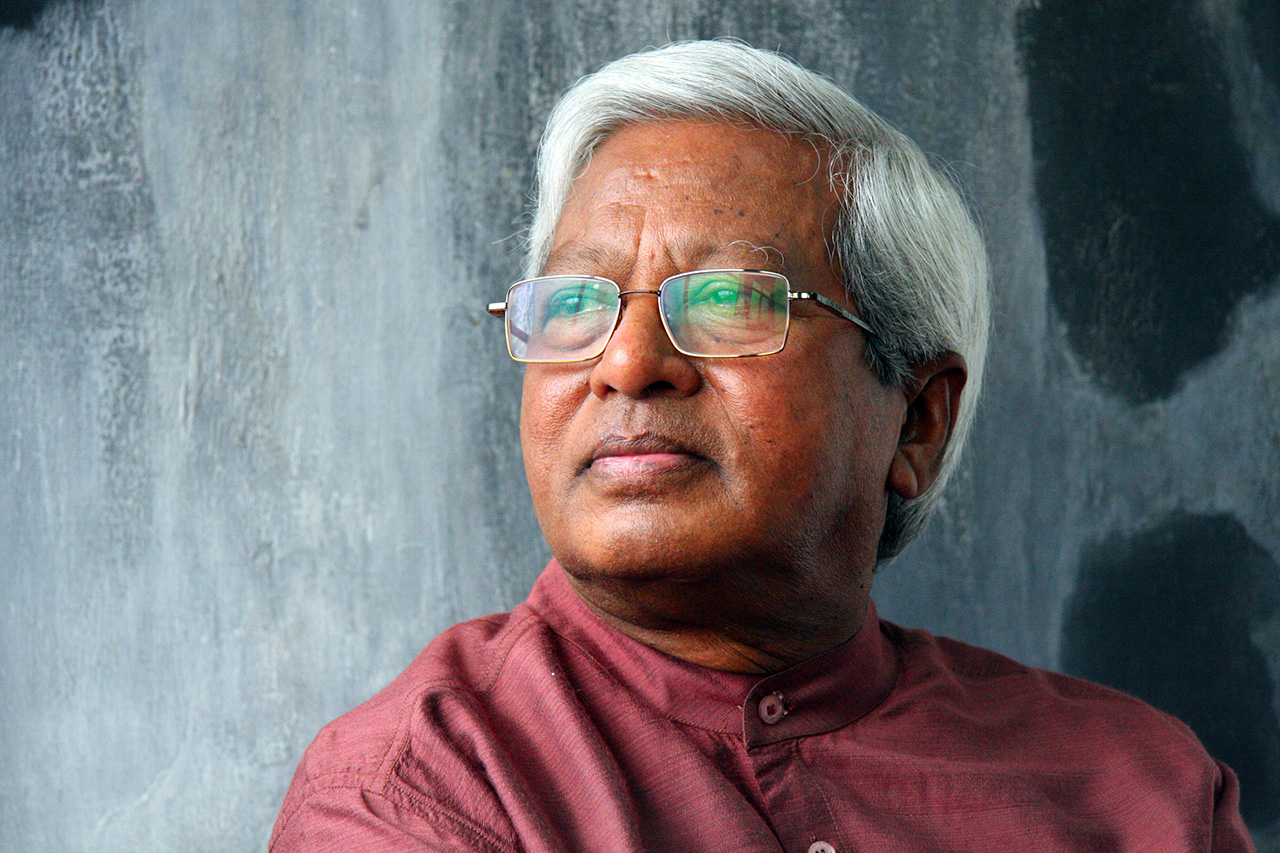
Today (Wednesday, 20 December 2023) is the 4th death anniversary of Sir Fazle Hasan Abed, the visionary leader and founder of BRAC, the largest NGO of the world, who passed away on this day in 2019. Sir Fazle Hasan Abed died at the age of 83, while undergoing treatment at a hospital in Dhaka. He established BRAC in 1972, after coming back from London, as a small relief and rehabilitation effort in a remote area of Sylhet.
Subsequently, as part of its enduring development strategy, BRAC initiated an extensive outreach to marginalised segments of society through diverse development initiatives. BRAC has devised a comprehensive development strategy aimed at empowering the underprivileged, encompassing initiatives in areas such as healthcare; education; microfinance; skills development; agriculture; and food security; cottage industries; human rights; road safety; migration; and urban development.
Born in 1936, Sir Fazle Hasan Abed studied accountancy in London, qualifying as a cost management accountant in 1962. While he was working as a senior corporate executive at Pakistan Shell Oil, the 1970 cyclone and 1971 Liberation War in Bangladesh dramatically changed the direction of his life.
After the onset of the War of Liberation, he resigned from his position and moved to London. There, he played a pivotal role in launching "Action Bangladesh" and "HELP Bangladesh", offering support for the Liberation War.
In 1972, after the war was over, he returned to the newly-independent Bangladesh, finding the economy in ruins. The return of 10 million refugees, who were sheltered in India during the war, called for urgent relief and rehabilitation.
Sir Fazle Hasan Abed then founded BRAC to address the needs of the refugees, guided by a desire to help people living in poverty develop their own capacity to better manage their lives. BRAC transformed itself to one of the largest and most effective NGOs in the world by conducting successful socio-economic programmes in many sectors over the last 50 years. BRAC now provides multifaceted services to over 100 million people in 11 countries of Asia and Africa, assisting them in bringing lasting changes to their lives.
Awards and Recognition
For his outstanding contributions to empowering people living in poverty and inequality, Sir Fazle Hasan Abed had been honoured with numerous national and international awards including the Yidan Prize for Education Development (2019), Dutch Royal Knighthood (2019), LEGO Prize (2018), Laudato Si' Award (2017), Jose Edgardo Campos Collaborative Leadership Award, South Asia Region (2016), Thomas Francis, Jr. Medal in Global Public Health (2016), World Food Prize (2015), Trust Women Hero Award (2014), Spanish Order of Civil Merit (2014), Leo Tolstoy International Gold Medal (2014), CEU Open Society Prize (2013), Inaugural WISE Prize for Education (2011), Entrepreneur for the World Award (2009), David Rockefeller Bridging Leadership Award (2008), Inaugural Clinton Global Citizen Award (2007), Henry R. Kravis Prize in Leadership (2007), Palli Karma Shahayak Foundation (PKSF) Award for lifetime achievement in social development and poverty alleviation (2007), UNDP Mahbubul Haq Award for Outstanding Contribution to Human Development (2004), Gates Award for Global Health (2004), Gleitsman Foundation International Activist Award (2003), Schwab Foundation’s Social Entrepreneurship Award (2003), Olof Palme Prize (2001), InterAction Humanitarian Award (1998) and Ramon Magsaysay Award for Community Leadership (1980).
He is also recognised by Ashoka as one of the 'global greats' and is a founding member of its prestigious Global Academy for Social Entrepreneurship. In 2009, he was appointed Knight Commander of the Most Distinguished Order of St. Michael and St. George by the British Crown in recognition of his services to reducing poverty in Bangladesh and internationally. Sir Fazle was a member of the Group of Eminent Persons appointed by the UN Secretary-General in 2010 to advise on support for the Least Developed Countries. In both 2014 and 2017, he was named in Fortune Magazine’s List of the World’s 50 Greatest Leaders.
The many honorary degrees received by Sir Fazle Hasan Abed include those from Princeton University (2014), the University of Oxford (2009), Columbia University (2008) and Yale University (2007).
More...
Join the world’s biggest family

